✊ Introduction: Martin Luther King Jr — A Legacy That Still Breathes
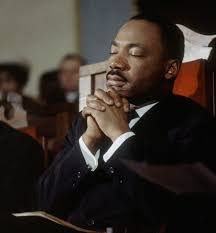
Martin Luther King Jr was not just a man—he was a movement wrapped in flesh. Born into a world that measured worth by skin color, he chose to measure humanity by conscience. With every word he spoke, every march he led, and every jail cell he endured, Martin Luther King Jr became a living symbol of resistance, dignity, and hope.
In a century marked by war, division, and oppression, Martin Luther King Jr stood as a bridge—between silence and speech, fear and courage, injustice and justice. He didn’t just challenge laws; he challenged hearts. His voice, calm yet commanding, carried the weight of generations who had been denied their place in history. And with that voice, he carved a path not just for African Americans, but for every soul yearning to be seen, heard, and respected.
Martin Luther King Jr believed in the power of nonviolence—not as weakness, but as wisdom. He understood that true strength lies not in fists, but in faith. His philosophy was rooted in love, but it was not passive. It was radical, relentless, and revolutionary. He taught the world that peace is not the absence of tension, but the presence of justice. And in doing so, he redefined what it meant to fight.
More than 50 years after his assassination, Martin Luther King Jr remains one of the most quoted, studied, and celebrated figures in global history. But beyond the speeches and statues, there is a man—a father, a husband, a preacher—who carried the weight of a nation on his shoulders. He faced threats, betrayals, and isolation. Yet he never stopped believing in the dream he saw so clearly: a world where character mattered more than color, where freedom was not a privilege but a birthright.
Martin Luther King Jr’s journey was not linear. It was filled with setbacks, doubts, and sacrifices. But each moment—whether standing at the Lincoln Memorial or sitting in a Birmingham jail—was a testament to his unwavering commitment. He didn’t seek fame; he sought fairness. He didn’t chase applause; he chased accountability. And in that pursuit, he became immortal.
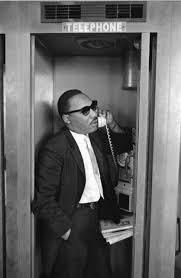
Today, Martin Luther King Jr is more than a historical figure. He is a mirror. His life forces us to ask: Are we living the dream, or just quoting it? Are we building bridges, or burning them? Are we choosing courage, or comfort?
His legacy is not just in textbooks—it’s in protests, policies, and prayers. It’s in every child who dares to dream, every leader who chooses integrity, and every citizen who refuses to be silent. Martin Luther King Jr gave us more than words; he gave us a blueprint. And that blueprint is still unfolding.
In a world where division often feels louder than unity, Martin Luther King Jr reminds us that change begins with conviction. That one voice, rooted in truth, can move mountains. That love, when armed with justice, becomes the most powerful force on earth.
Martin Luther King Jr didn’t just live history—he rewrote it. And as we walk through the pages of his life, we don’t just remember a man. We remember a mission. A mission that demands we speak, act, and believe—not just for ourselves, but for those still waiting to be free..
Table of Contents
🎤 Speech Title: “The Dream That Refused to Die”
- Location: Lincoln Memorial, Washington D.C.
- Date: August 28,
- Crowd Size: Thousands gathered to honor his legacy
- Motive: To reflect on Martin Luther King Jr’s enduring impact and call for renewed moral courage
🗣️ Full Speech:
Brothers and sisters,
We gather not merely to remember a man, but to rekindle a movement.
Martin Luther King Jr did not live for applause. He lived for accountability. He did not march for fame. He marched for freedom. He did not dream for himself. He dreamed for all of us.
On these very steps, he once declared that justice must roll down like waters, and righteousness like a mighty stream. Today, we must ask: Have we become the stream—or the stone that blocks it?
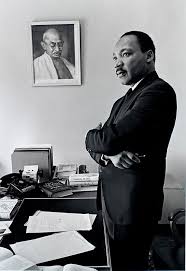
He taught us that nonviolence is not weakness—it is wisdom. That love is not passive—it is powerful. That silence is not peace—it is betrayal.
Martin Luther King Jr stood in jail cells, faced bullets, endured betrayal. Yet he never surrendered his faith in humanity.
He believed that character must rise above color. That conscience must rise above comfort. That courage must rise above convenience.
And though he was taken from us by violence, his voice still speaks.
It speaks in every march for dignity.
It speaks in every vote cast against injustice.
It speaks in every child who dares to dream beyond the limits imposed by history.
Let us not reduce him to a holiday or a hashtag.
Let us rise to his challenge.
Let us be bold in truth.
Let us be fierce in compassion.
Let us be relentless in hope.
For the dream lives on—not in memory, but in movement.
And as long as injustice exists, the voice of Martin Luther King Jr will echo through our conscience, demanding that we not sleep through the revolution of moral renewal.
The dream refused to die.
Now it is ours to carry.
📘 Martin Luther King Jr: The Genesis of a Conscience (1929–1948)
🧒 1929: The Birth of a Voice Yet to Rise
On January 15, 1929, in the racially segregated heart of Atlanta, Georgia, a child was born into a world that measured human worth by skin tone. His name was Michael King Jr., later changed to Martin Luther King Jr. by his father—a symbolic act that aligned the boy’s destiny with the legacy of the German reformer Martin Luther. This was not merely a change of name; it was a declaration of purpose. From the moment of his birth, Martin Luther King Jr. was enveloped in a household steeped in spiritual conviction, intellectual rigor, and moral clarity.
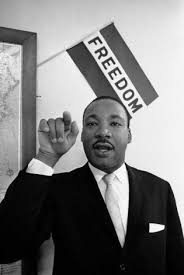
His father, Reverend Martin Luther King Sr., was a powerful preacher whose sermons thundered against injustice. His mother, Alberta Williams King, was a gentle educator and musician, whose grace and discipline shaped the emotional fabric of the home. The young King was raised in a world of gospel hymns, biblical parables, and the harsh realities of racial discrimination. He saw the “Whites Only” signs. He felt the sting of exclusion. But even as a child, he began to question the logic of hatred and the silence of society.
📚 1930s: Childhood in the Shadow of Segregation
Throughout the 1930s, Martin Luther King Jr. grew up in the Sweet Auburn neighborhood—a vibrant but marginalized Black community. He was surrounded by the paradox of pride and pain. His family was respected, educated, and spiritually grounded, yet they lived under the constant weight of systemic racism. As a young boy, he experienced the heartbreak of losing white friends whose parents forbade interracial play. These early wounds did not harden him—they awakened him.
He began to ask questions that most children avoided:
Why are we treated differently?
Why does color decide dignity?
Why does silence surround injustice?
These questions would later become the foundation of his philosophy. He didn’t just observe injustice—he internalized it, dissected it, and prepared to confront it.
🎓 1944: A Scholar Beyond His Years
At the age of 15, Martin Luther King Jr. entered Morehouse College, a historically Black institution that had produced generations of leaders. His early admission was not a fluke—it was a reflection of his intellectual maturity and emotional depth. At Morehouse, he encountered the writings of Henry David Thoreau, Mahatma Gandhi, and Ralph Waldo Emerson. He began to understand that resistance could be moral, that protest could be peaceful, and that leadership required sacrifice.
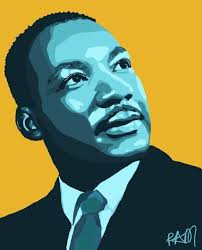
Under the mentorship of Dr. Benjamin Mays, the college president and a towering figure in Black theology, King’s worldview expanded. He was no longer just a preacher’s son—he was becoming a thinker, a philosopher, and a future leader. He studied sociology not as an academic exercise, but as a tool to understand the architecture of oppression. He saw how laws, institutions, and culture conspired to maintain inequality. And he vowed to challenge them—not with violence, but with vision.
🎓 1948: Graduation and Theological Awakening
In 1948, Martin Luther King Jr. graduated from Morehouse with a Bachelor of Arts in Sociology. But his journey was far from complete. He enrolled at Crozer Theological Seminary in Pennsylvania, where he would refine his understanding of Christian ethics, social justice, and the transformative power of love. At Crozer, he was not just a student—he was a rising moral force.
He studied the teachings of Jesus, the strategies of Gandhi, and the writings of Reinhold Niebuhr. He began to see that the pulpit could be a platform for protest, that sermons could be strategies, and that faith could be a form of resistance. He graduated at the top of his class, not just for his academic excellence, but for his ability to synthesize theology with activism.
Crozer gave him more than a degree—it gave him direction. It was here that Martin Luther King Jr. began to articulate the principles that would later define the Civil Rights Movement:
- Nonviolence as a weapon of the strong
- Love as a force for justice
- Faith as a foundation for freedom
🧠 Legacy Reflection: The Making of a Moral Architect
Between 1929 and 1948, Martin Luther King Jr. was not yet a global icon. He was a boy becoming a man, a student becoming a scholar, and a thinker becoming a visionary. Every experience—every book, every betrayal, every prayer—was shaping a conscience that would later confront the conscience of a nation.
He did not begin with marches. He began with questions.
He did not begin with speeches. He began with silence.
He did not begin with fame. He began with faith.
This was the genesis of Martin Luther King Jr—not the man who had a dream, but the child who dared to ask why.
🎓 Martin Luther King Jr: The Years That Forged His Flame (1948–1955)
📘 1948: Theological Grounding Begins
In the year 1948, Martin Luther King Jr transitioned from Morehouse College to Crozer Theological Seminary in Chester, Pennsylvania. This was not merely an academic shift—it was a spiritual migration. At Crozer, King entered a world of rigorous theological debate, surrounded by white classmates and professors who often viewed him through the lens of race before intellect.
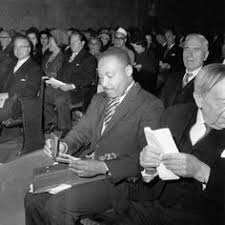
Yet King did not shrink. He expanded.
He immersed himself in the writings of Gandhi, Reinhold Niebuhr, and Paul Tillich. He began to see theology not as a pulpit-bound discipline, but as a tool for social transformation. His sermons matured. His questions deepened. And his resolve to confront injustice through nonviolence began to crystallize.
Crozer was cold. But King’s spirit burned warmer than ever.
📘 1951: Bachelor of Divinity — Faith Refined into Strategy
By 1951, Martin Luther King Jr had earned his Bachelor of Divinity. But this was no ordinary graduation. It marked the moment when faith became fire. King had not only mastered scripture—he had weaponized it against oppression.
His speeches now carried the weight of moral urgency.
He spoke of love—not as sentiment, but as a radical force capable of dismantling hate.
He preached justice—not as a distant ideal, but as a divine imperative.
Crozer had given him theological tools. King gave them purpose.
📘 1953: Marriage to Coretta Scott — Love Meets Legacy
In 1953, Martin Luther King Jr married Coretta Scott—a woman of music, intellect, and unwavering conviction. Their union was not merely romantic; it was revolutionary.
Coretta was not a silent partner. She was a co-architect of King’s legacy.
She believed in his dream before the world did.
She stood beside him in marches, endured threats, and raised their children while the nation watched her husband challenge its conscience.
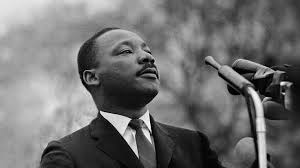
Their marriage fused love with mission.
It was a partnership built not just on affection, but on shared vision.
📘 1955: PhD from Boston University — The Scholar Becomes a Strategist
In 1955, Martin Luther King Jr completed his PhD in Systematic Theology from Boston University. He was now Dr. King. But the title was not the triumph—the transformation was.
His doctoral work explored the intersection of divine justice and human suffering.
He didn’t just want to preach salvation—he wanted to engineer social change.
Boston gave him academic prestige.
But more importantly, it gave him intellectual ammunition for the battles ahead.
King now possessed the moral vocabulary, the strategic clarity, and the spiritual depth to lead a movement.
🧠 Legacy Reflection: The Silent Years That Built the Storm
Between 1948 and 1955, Martin Luther King Jr was not yet a household name.
He was a man in formation—quietly sharpening the tools that would later shake the world.
These years were not loud.
They were deliberate, disciplined, and deeply personal.
He learned that theology must touch the streets.
That love must confront power.
That leadership must begin with listening.
This was the incubation of a legacy.
A preacher was becoming a prophet.
A scholar was becoming a strategist.
A husband was becoming a symbol.
✊ 1955–1963: The Rise of Martin Luther King Jr — From Pulpit to Protest
🔹 1955: The Spark in Montgomery — Rosa Parks and the Boycott That Changed the World
In the cold December of 1955, a quiet act of defiance ignited a revolution. When Rosa Parks refused to surrender her seat to a white passenger on a segregated Montgomery bus, she wasn’t just tired—she was done. Her arrest sent ripples through the Black community, but it was Martin Luther King Jr, then a 26-year-old pastor at Dexter Avenue Baptist Church, who transformed that ripple into a tidal wave.
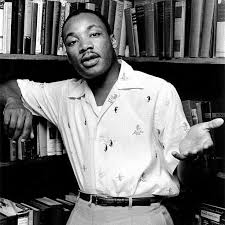
He was young. He was new to leadership. But he was ready.
With calm authority and moral clarity, Martin Luther King Jr was chosen to lead the Montgomery Improvement Association, which organized the Montgomery Bus Boycott. What followed was not just a protest—it was a 381-day act of collective courage. Black citizens walked miles to work, carpooled in secret, and endured threats, arrests, and violence. Their dignity was their weapon. Their silence was their strength.
King’s home was bombed. He was arrested. But he never wavered.
He preached nonviolence. He practiced it.
He didn’t just speak of justice—he embodied it.
The boycott ended in victory. The Supreme Court ruled bus segregation unconstitutional. But more than a legal win, it was a moral awakening. The world had witnessed the birth of a new kind of leader—Martin Luther King Jr, a man who could turn pain into purpose and prayer into protest.
🔹 1957: The Birth of a Movement — Founding the SCLC
In 1957, the momentum of Montgomery needed a national voice. King, along with other Black ministers and activists, co-founded the Southern Christian Leadership Conference (SCLC). Its mission was clear: to harness the moral authority of Black churches and lead nonviolent campaigns for civil rights across the South.
Martin Luther King Jr became its first president. But he was more than a figurehead—he was its heartbeat.
The SCLC was not a political machine. It was a spiritual engine.
It didn’t seek power—it sought justice.
It didn’t rely on weapons—it relied on faith, discipline, and collective sacrifice.
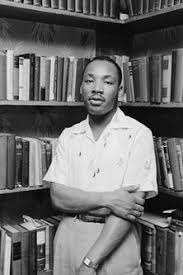
Under King’s leadership, the SCLC launched voter registration drives, organized mass meetings, and trained communities in nonviolent resistance. The organization became a beacon for the oppressed and a thorn in the side of segregationists.
That same year, King published his first book, Stride Toward Freedom, chronicling the Montgomery struggle. In it, he articulated his philosophy of nonviolent direct action, inspired by Gandhi and rooted in Christian love. The book was not just a memoir—it was a manifesto for moral revolution.
🔹 1960: Return to Atlanta — The Pulpit and the Battlefield
By 1960, King returned to his hometown of Atlanta, where he became co-pastor at Ebenezer Baptist Church alongside his father. But this was no retreat—it was a strategic move. Atlanta was the heart of the South, and King knew that the battle for civil rights had to be fought from the frontlines.
From the pulpit of Ebenezer, Martin Luther King Jr preached not just salvation, but social transformation. His sermons were thunderous calls to conscience. He spoke of love, yes—but also of law. Of justice. Of the sacred duty to resist evil, even when it wears a legal robe.
That same year, King supported the Atlanta Student Movement, a wave of sit-ins led by Black college students demanding desegregation of lunch counters. When the students were arrested, King joined them in jail. It was a calculated risk—his first arrest in Georgia—but it electrified the national media and drew attention to the movement’s moral urgency.
🔹 1963: The Dream That Shook the Nation — March on Washington
By 1963, America was at a boiling point. Birmingham was burning. Churches were being bombed. Children were being jailed for marching. The time had come for a national reckoning.
On August 28, 1963, over 250,000 people gathered in Washington, D.C., for the March on Washington for Jobs and Freedom. It was the largest civil rights demonstration in American history. And at its heart stood Martin Luther King Jr.
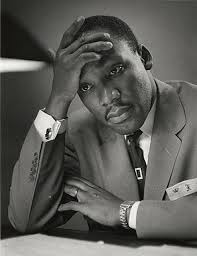
When he stepped onto the steps of the Lincoln Memorial, he was not just a preacher. He was a prophet.
His speech began with prepared remarks. But then, prompted by gospel singer Mahalia Jackson’s cry—“Tell them about the dream, Martin!”—he set the script aside. What followed was history.
“I have a dream that one day this nation will rise up and live out the true meaning of its creed…”
With those words, Martin Luther King Jr didn’t just address a crowd—he addressed the soul of a nation.
He painted a vision of unity, justice, and brotherhood.
He didn’t beg for freedom—he declared it.
He didn’t ask for change—he demanded it.
The speech was broadcast across the world. It became a defining moment—not just for the Civil Rights Movement, but for the moral identity of America.
🧠 Legacy Reflection: The Rise of a Revolutionary Shepherd
Between 1955 and 1963, Martin Luther King Jr evolved from a local pastor to a global symbol of nonviolent resistance. But this rise was not meteoric—it was methodical. It was built on sacrifice, strategy, and spiritual conviction.
He faced death threats, FBI surveillance, and political betrayal.
He buried friends. He comforted grieving mothers.
He walked into fire with nothing but faith.
Yet he never lost his gentleness.
He never abandoned his belief in humanity.
He never stopped dreaming.
These years were not just about marches and speeches.
They were about building a moral movement—one that would outlive him.
One that would echo in every struggle for justice across the globe.
Sources:
Britannica Timeline
SFMLK Day Timeline
Library of Congress
🕊️ 1964–1967: Martin Luther King Jr — From Peace Prize to Global Prophet
📘 1964: The Nobel Peace Prize — A Global Salute to Nonviolence
In October 1964, while resting in an Atlanta hospital, Martin Luther King Jr received a call from Coretta Scott King. Her voice trembled with joy. He had been awarded the Nobel Peace Prize—the youngest recipient at just 35 years old.
This was not merely a personal honor. It was a global validation of nonviolent resistance. The Nobel Committee praised him as “the first person in the Western world to show that a struggle could be waged without violence.” His philosophy—rooted in Christian love and Gandhian discipline—had moved beyond the American South. It had become a universal language of justice.
In Oslo, King stood before the world and declared:
“I accept this award on behalf of a movement that is moving with determination and a majestic scorn for risk and danger.”
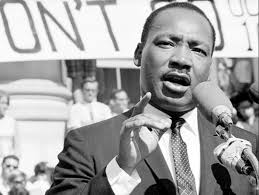
He didn’t speak of victory. He spoke of unfinished work.
He didn’t bask in applause. He redirected it to the poor, the oppressed, the voiceless.
The Nobel Prize gave Martin Luther King Jr international stature. But he remained grounded. He returned to the streets, the pulpits, and the people. The prize was not a pause—it was a propeller.
📘 1965: Selma to Montgomery — Marching for the Right to Vote
In early 1965, the battle shifted to Selma, Alabama. Despite constitutional guarantees, Black citizens were routinely denied the right to vote. Registration offices were barricaded by bureaucracy and brutality.
Martin Luther King Jr joined local activists to lead a series of marches from Selma to Montgomery. The first attempt—“Bloody Sunday”—was met with tear gas and batons. Peaceful marchers were beaten on the Edmund Pettus Bridge. The images shocked the nation.
King responded not with rage, but with resolve.
He called for a second march.
He called for America’s conscience.
On March 21, under federal protection, thousands marched 54 miles to Montgomery. King walked at the front—calm, determined, unarmed.
He didn’t just demand voting rights. He embodied them.
The march led directly to the passage of the Voting Rights Act of 1965, one of the most transformative laws in U.S. history.
But King knew legislation was not liberation.
He said:
“The vote is important, but it is not enough. We must also address economic injustice.”
Selma was a victory. But it was also a pivot.
📘 1966–1967: Expanding the Mission — Poverty, Housing, and War
By 1966, Martin Luther King Jr began to confront a deeper truth:
Racism was not isolated—it was entangled with poverty, militarism, and economic exploitation.
He moved into a slum apartment in Chicago, launching the Chicago Freedom Movement. His goal: expose housing discrimination, urban neglect, and economic disparity.
He faced jeers, stones, and hostility—not just from white supremacists, but from liberal allies who feared his expanding agenda.
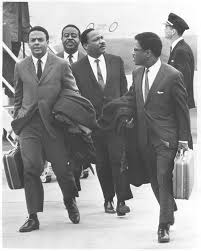
King said:
“I have seen hatred in the North that I had never seen in the South.”
Yet he persisted.
He spoke in tenements.
He marched through hostile neighborhoods.
He demanded fair housing, decent wages, and dignity for the poor.
Simultaneously, the Vietnam War escalated. King watched billions spent on bombs while children starved in Harlem.
He could no longer remain silent.
📘 1967: “Beyond Vietnam” — The Speech That Shook the Establishment
On April 4, 1967, at Riverside Church in New York, Martin Luther King Jr delivered his most controversial speech: “Beyond Vietnam: A Time to Break Silence.”
He condemned the war as “a cruel manipulation of the poor”, where young Black men were sent to die for a country that denied them basic rights.
He called America “the greatest purveyor of violence in the world.”
He linked racism, poverty, and militarism as a triple threat to democracy.
The backlash was swift.
Media turned on him.
Political allies distanced themselves.
Donors withdrew support.
But King stood firm.
He said:
“A time comes when silence is betrayal.”
This speech marked a turning point.
King was no longer just a civil rights leader—he was a global moral critic.
He had moved beyond race, beyond borders, beyond comfort.
🧠 Legacy Reflection: The Prophet in the Storm
Between 1964 and 1967, Martin Luther King Jr evolved from a national icon to a global conscience.
He won the world’s highest peace honor.
He marched for the soul of democracy.
He challenged poverty, housing, and war.
He risked everything—not for applause, but for truth.
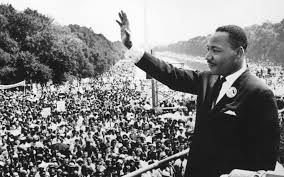
These years were not easy.
He was surveilled by the FBI.
He was betrayed by allies.
He was exhausted, isolated, and often afraid.
Yet he never stopped.
He never diluted his message.
He never abandoned his dream.
He taught us that peace is not passive.
That love must confront power.
That justice must be radical, relentless, and rooted in compassion.
Sources:
🕊️ 1968: Martin Luther King Jr — The Final Hours of a Prophet
📘 April 3, 1968: “I’ve Been to the Mountaintop” — A Voice That Knew Its End
On the evening of April 3, 1968, inside the Mason Temple in Memphis, Tennessee, Martin Luther King Jr stood before a weary crowd. The city’s sanitation workers were on strike, demanding dignity, fair wages, and basic human respect. King had come to support them—not with money, but with moral fire.
He was tired. He had a sore throat. A storm raged outside.
Yet he rose to speak.
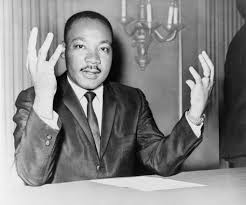
What followed was not just a speech—it was a spiritual farewell.
He spoke of unity, economic justice, and nonviolent resistance.
He called for boycotts of racist businesses.
He urged the crowd to stay strong, stay together, stay faithful.
But then, his tone shifted.
He spoke of death—not with fear, but with peace.
“We’ve got some difficult days ahead. But it really doesn’t matter with me now… I’ve been to the mountaintop… I’ve seen the Promised Land. I may not get there with you. But I want you to know tonight, that we, as a people, will get to the Promised Land.”
The crowd fell silent.
Some wept.
Some felt chills.
Martin Luther King Jr had always been prophetic. But this was different.
He was not predicting history.
He was preparing to leave it.
📘 April 4, 1968: The Assassination — A Nation Loses Its Conscience
The next day, April 4, 1968, Martin Luther King Jr woke up in his room at the Lorraine Motel. He joked with friends. He planned dinner. He prepared for another march.
At 6:01 PM, as he stood on the balcony, a single bullet struck him in the neck.
He collapsed instantly.
His aides screamed.
The world stopped.
He was rushed to St. Joseph’s Hospital, but it was too late.
Martin Luther King Jr was pronounced dead at 7:05 PM.
The assassin, James Earl Ray, fled the country.
The FBI launched an investigation.
The streets of America erupted in grief, rage, and fire.
But amid the chaos, something sacred remained.
King’s death was not the end of a man.
It was the birth of a martyr.
🧠 Legacy Reflection: The Final Hours That Echo Forever
In his last 24 hours, Martin Luther King Jr did not retreat.
He did not soften.
He did not hide.
He stood in the storm.
He spoke of justice.
He embraced destiny.
His final speech was not political—it was biblical.
His final breath was not fearful—it was faithful.
He died not in silence, but in service.
Not in comfort, but in courage.
And in doing so, he became more than a leader.
He became a symbol of moral resistance, a voice for the voiceless, and a mirror for every nation’s conscience.
Sources:
Wikipedia – “I’ve Been to the Mountaintop”
Stanford King Institute – Mountaintop Speech
Britannica – Assassination of Martin Luther King Jr.
🧠 Conclusion: Martin Luther King Jr — The Echo That Refuses to Fade
Martin Luther King Jr was not merely a man of words—he was a man of wounds, wisdom, and unwavering will. He walked through fire with faith as his armor. He stood in silence where others shouted, and he spoke with thunder where others whispered. His life was a sermon. His death, a sacrifice. His legacy, a mirror.
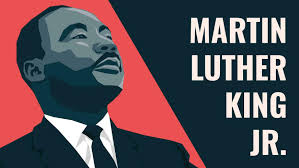
He taught the world that justice is not seasonal, that dignity is not negotiable, and that peace must be pursued with courage, not comfort. He did not ask history to remember him. He demanded that humanity remember itself.
Even now, decades after his final breath, the voice of Martin Luther King Jr still rises in every march for equality, in every courtroom where truth is tested, and in every heart that dares to dream beyond division.
He did not live to see the Promised Land.
But he made us believe it was possible.
Let us not reduce him to memory.
Let us rise to his message.
For the dream lives on.
And now, it is ours to carry.
Internal Links: 1https://historyverse7.com/mahatma-gandhi/ 2.https://historyverse7.com/jawaharlal-nehru/
External Links:https://en.wikipedia.org/wiki/Martin_Luther_King_Jr. 2.https://www.facebook.com/thekingcenter/posts/color-photos-of-dr-martin-luther-king-jr-as-we-remember-him-on-the-54th-annivers/10160616387828933/
📘 FAQ: Understanding Martin Luther King Jr.
-
1. Why did Martin Luther King Jr. often pause before answering questions in interviews?
Ans: Because silence was his strategy. King believed that a pause allowed truth to breathe. It wasn’t hesitation—it was precision. Every word was chosen to carry weight, not just sound.
-
2. What did Martin Luther King Jr. see as the greatest threat to justice—noise or silence?
Ans: Silence. He feared the quiet complicity of good people more than the loud hatred of oppressors. To him, indifference was injustice’s most loyal ally.
-
3. How did King’s wardrobe reflect his philosophy?
Ans: His suits weren’t just formal—they were intentional. He dressed with dignity to mirror the respect he demanded for his people. His appearance was a protest against stereotypes.
-
4. What was King’s relationship with exhaustion?
Ans: He embraced it. King saw fatigue not as weakness but as proof of commitment. Sleepless nights were the price of moral clarity. He wore tiredness like a badge of purpose.
-
5. If King could speak to today’s generation, what would he ask first?
Ans: Are you dreaming loud enough?” He wouldn’t start with critique—he’d start with challenge. King believed that the size of your dream defines the scale of your impact.
Share this content:

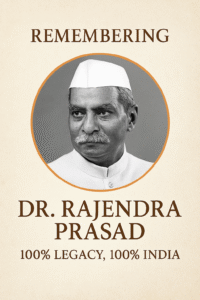
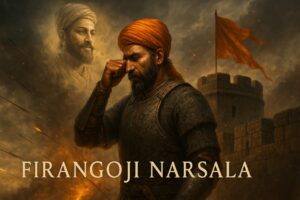

Very nice …👍👌👌
Great 🚩👍🏻🙌🏻